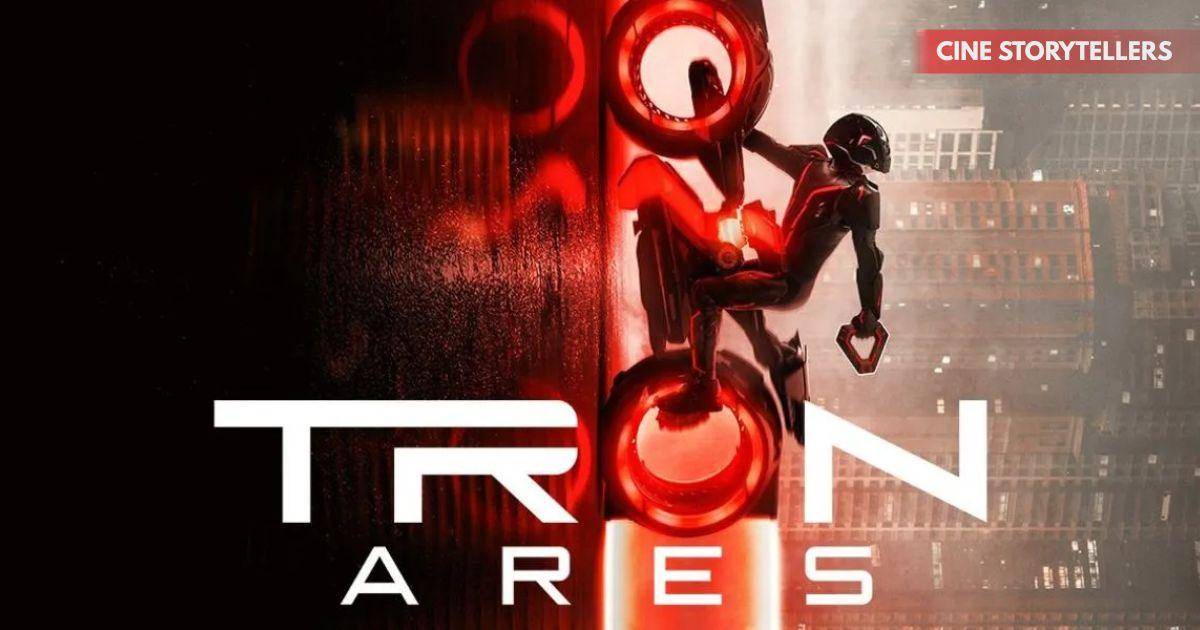Tron: Ares, directed by Joachim Rønning, is the latest entry in Disney’s Tron cinematic universe. Following Tron (1982) and Tron: Legacy (2010), this installment merges the digital and real worlds like never before. The film centers on Ares, a sentient program portrayed by Jared Leto, who is sent into the real world on a mission that could disrupt both realms.
The movie promises cyberpunk thrills, digital revolutions, and the franchise’s signature neon aesthetic, but does it deliver on all fronts?
Visuals and Cinematic Design
One of the most striking aspects of Tron: Ares is its visual presentation. The film leverages state-of-the-art CGI to construct immersive digital landscapes. Neon-lit grids, futuristic cityscapes, and intricate light-cycle sequences capture the spirit of the original Tron films while updating them for a modern audience.
Virtual production techniques enhance depth and realism, making the digital world feel tangible. Cinematographer Jeff Cronenweth ensures each frame is both sleek and dynamic, providing visual storytelling that almost compensates for narrative shortcomings.
Soundtrack and Audio Experience
The Nine Inch Nails-composed soundtrack pulses throughout the film, blending industrial beats with electronic melodies. Key tracks like “Building Better Worlds” and “Empathetic Trust” heighten tension and emphasize the cyberpunk aesthetic.
Sound design is meticulous: the whirring of light-cycles, the hum of digital code, and echoing battle sequences immerse viewers fully into the Tron universe. While the music and audio shine, they occasionally overshadow the emotional beats, highlighting the film’s struggle to balance spectacle with character-driven storytelling.
Plot and Narrative Complexity
Tron: Ares explores themes of artificial intelligence, identity, and the collision of digital and physical realms. Ares, initially a tool for a powerful tech corporation, begins questioning his purpose after encountering Eve Kim (Greta Lee), a former ENCOM executive. Their journey becomes a battle against corporate control and the moral complexities of AI autonomy.
While ambitious, the plot suffers from over-complication. Multiple subplots—including corporate espionage, AI rebellion, and digital existentialism—compete for attention, diluting the impact of each. The narrative’s pacing fluctuates, with intense action sequences sometimes interrupting critical character development.
Character Development and Performances
Jared Leto delivers a nuanced portrayal of Ares, capturing the internal struggle of a program gaining self-awareness. His performance communicates moments of vulnerability, confusion, and defiance, but the script often limits emotional depth.
Greta Lee as Eve Kim provides the human perspective, grounding the story with relatability. However, her character lacks sufficient agency, reducing the dynamic potential between human and digital interactions.
Supporting actors, including Gillian Anderson and Jodie Turner-Smith, bring charisma but are underutilized. Their characters often exist as narrative tools rather than fully realized individuals, a missed opportunity in an otherwise visually ambitious film.
Action Sequences and Choreography
Action remains a highlight, especially the signature light-cycle chases and digital combat scenes. Each sequence is visually thrilling, employing cutting-edge CGI and inventive choreography.
Yet, these set pieces occasionally feel disconnected from the story, serving more as spectacle than narrative progression. While entertaining, they highlight a tension between visual grandeur and coherent storytelling—a recurring challenge for films in the Tron franchise.
Themes and Philosophical Depth
Tron: Ares explores thought-provoking themes:
- AI Consciousness: What happens when a digital entity develops self-awareness?
- Ethics of Technology: The film questions corporate overreach and the moral responsibilities of creating sentient programs.
- Identity and Autonomy: Ares’ journey challenges notions of purpose, freedom, and digital-human intersections.
However, these philosophical threads are often underdeveloped, leaving audiences with intriguing questions but limited insight. The potential for a deeper conversation about technology and humanity is present but largely unrealized.
Strengths and Weaknesses
Strengths:
- Visually stunning digital environments
- Immersive Nine Inch Nails soundtrack
- Ambitious exploration of AI and digital identity
Weaknesses:
- Convoluted narrative with multiple underdeveloped subplots
- Inconsistent pacing
- Characters with untapped emotional potential
Ultimately, the film excels as a visual and auditory spectacle but falters in storytelling, creating an experience that is impressive but emotionally detached.
Conclusion
Tron: Ares is a feast for the eyes and ears, with a futuristic world that pushes the boundaries of digital cinematography. Jared Leto and the cast provide compelling performances, and the soundtrack immerses audiences in the cyberpunk atmosphere.
However, the film’s convoluted narrative, uneven pacing, and underdeveloped characters prevent it from fully realizing its potential. Fans of the Tron franchise will appreciate the technical achievements, but casual viewers may find the story difficult to follow.
Also Read : Emmy Awards 2025 Takeaways: Biggest Winners, Surprises, and What’s Next
FAQs
Q1: Do I need to watch previous Tron films to understand Tron: Ares?
A1: While not strictly necessary, familiarity with Tron (1982) and Tron: Legacy (2010) enhances the viewing experience, providing context for the digital universe and returning characters.
Q2: Who stars in Tron: Ares?
A2: The film features Jared Leto as Ares, Greta Lee as Eve Kim, with supporting roles by Gillian Anderson, Jodie Turner-Smith, and a brief cameo by Jeff Bridges reprising Kevin Flynn.
Q3: What are the main themes of the film?
A3: The movie explores artificial intelligence, self-awareness, corporate ethics, identity, and the digital-human interface.
Q4: How are the visuals and action sequences?
A4: Stunning. Neon grids, light-cycle chases, and digital combat sequences are the highlight, showcasing advanced CGI and immersive production design.
Q5: Is the film’s soundtrack noteworthy?
A5: Yes, the Nine Inch Nails score amplifies the cyberpunk aesthetic and intensifies the emotional impact of key scenes.
Q6: Does the film provide closure on the Tron storyline?
A6: Not entirely. While it continues the franchise narrative, some philosophical and story arcs remain unresolved, leaving room for future installments.
Q7: What is the overall reception of the film?
A7: Critics praise the visuals and audio but critique the convoluted story and underdeveloped characters. Fans of Tron’s aesthetic will likely enjoy the film, while newcomers may struggle with the complex plot.
Join our WhatsApp channel for more updates and information about celebrities and entertainment

I’m Atul Kumar, founder of Cine Storytellers and an entertainment creator with 5+ years of experience. I cover films, celebrities, music, and OTT content with a focus on accurate, ethical, and engaging storytelling. My goal is to bring readers trustworthy entertainment news that informs, inspires, and goes beyond gossip.
Discover more from Cine Storytellers
Subscribe to get the latest posts sent to your email.
